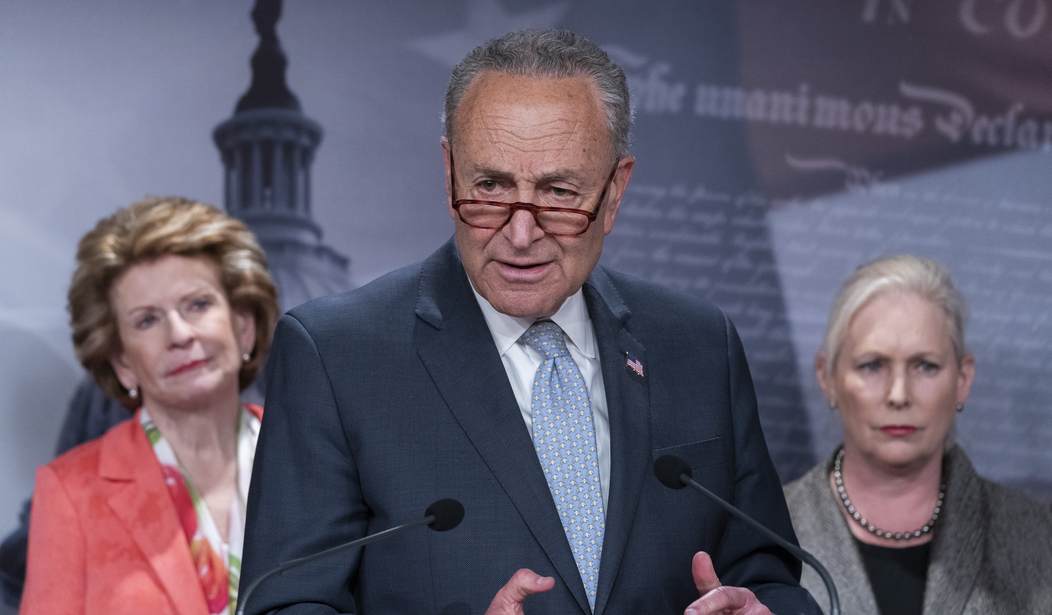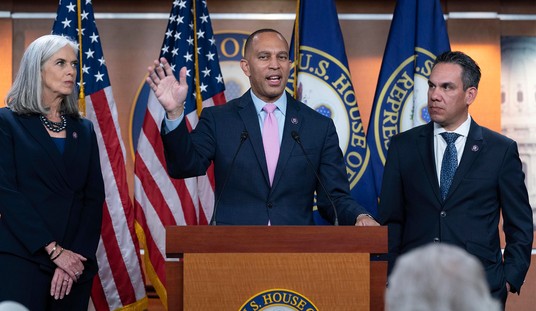Ahead of what will surely be a tough map for Senate Democrats in 2024, one of their caucus has decided not to run for re-election.
Michigan Senator Debbie Stabenow announced Thursday morning she would not be seeking re-election, raising a possible red flag for Democrats who see 2024 as a very tough year for their party in the Senate.
While a handful of seats were considered swing seats in 2022, most analysts agreed back before the midterms that the 2024 map is just “brutal” for the party.
Even as the caucus pushes to expand a 50-50 majority this fall, it’s bracing for a fight to defend 23 seats to the GOP’s 10 in the next election cycle — many of them in red and purple territory. Against that backdrop, at least eight members of Chuck Schumer’s caucus are agonizing over whether to run again, and a couple hail from states that may be lost to the GOP if the incumbent bows out.
Several senators are waiting to see how the midterms shake out in a month before making any moves, according to interviews and statements from 22 of the 23 sitting Democrats up in 2024. And holding the majority this fall in a tough environment could help keep some incumbents happier about running for reelection.
Some of those wrestling with whether to run hold safe seats, like Ben Cardin of Maryland and Tom Carper of Delaware. Others represent perennial battlegrounds, like Jon Tester of Montana and Joe Manchin of West Virginia, both of whom survived the 2018 midterm cycle that evicted four colleagues from red or swing states.
However, the fact that Stabenow has decided not to run is a surprise to some, as Michigan was not forecast to be as much of a swing state as the others. But Republican performance in the state in November may have caused some concern.
In an interview with the Detroit News, Stabenow says that she is inspired by the energy of younger voters and activists.
BREAKING: Michigan's U.S. Sen. Stabenow tells me she won't seek reelection in 2024 https://t.co/wrNRPljaUw via @detroitnews
— Melissa Nann Burke (@nannburke) January 5, 2023
In an exclusive interview, the Lansing Democrat told The Detroit News that her decision was inspired by the November election results ― seeing the “energy” among young voters and a new generation of Democratic leaders in Michigan made her confident she can “pass the torch” to a Democratic successor.
“I’ve had a wonderful career and honor of breaking barriers and being the first woman to reach various historic milestones, but I never felt it was enough to be a first if there wasn’t a second and third and fourth and so on,” said Stabenow, who serves as the No. 3 Democrat in the Senate leadership.
“I think it’s important to know the time and place where you open doors again for others and pass the torch. I feel like this is really the right time for me, it’s the right time for Michigan,” she added.
“I’ve been incredibly honored in so many ways to serve Michigan both at the county level and the state and federal level, and very, very honored that I’ve had a chance to make a difference in people’s lives both in policy, as well as with the best staff team there is on the Hill.”

While it’s hard to tell whether or not the GOP has a shot at picking up the seat, there is no denying that 2022 was a disaster for the party on the Senate side. For the GOP to pick up Michigan, they will need to vastly overperform what they did in November and do so with a strong candidate. Several factors will come into play in that potential fight.
Two are known weaknesses from this past November: Candidate quality and candidate funding. Another factor that will undoubtedly come into play is the strength of whoever the GOP’s presidential candidate in 2024 ends up being. The ability to motivate voters to go out to the polls will be key, and a strong ticket from top to bottom will be necessary to maximize voter turnout.
Is Michigan really up for grabs? It’s hard to say right now. There is potential, but the GOP will have to put in a lot of work.













Join the conversation as a VIP Member